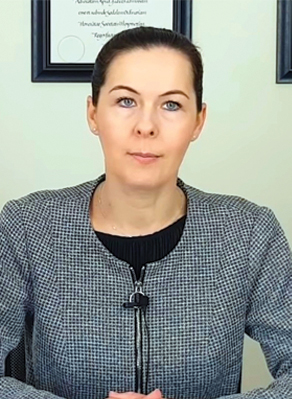With Barrister-at-Law Tracey O’ Mahony
Last week The Advertiser spoke to Barrister Tracey O’ Mahony about the legal rights for parents and children as they return to education. We covered issues such as the rights of a school to ask for a child’s vaccination status, temperature checks, age of consent to medical treatment and the possibility of mandatory vaccines for school children.
As a follow up to this discussion Tracey has provided us with information with regard to one or two parent consent, what actually is informed consent and requirement of PCR testing if your child is a close contact.
Whether one parent or two parent consent is required for medical treatment for your child (which includes the Covid-19 vaccine)
Under current Irish law, the mother has automatic parental responsibility for the child.
However, the father is also given parental responsibility if:
a) he is married to the mother at the time of the child’s birth;
b) they marry after the birth of the child; or
c) if both adopt the child together.
If a child is born outside marriage the mother is given automatic responsibility for all decisions relating to the child, however the father has automatic guardianship if he has lived with the mother for 12 consecutive months, including 3 months after the child is born, (but this 12-month period must have commenced after January 2016).
The father of the child can also apply to the Court to become the child’s legal guardian.
With respect to legally separated parents, unless a Court Order states otherwise, both parents have responsibility for medical treatment for the child.
So, in certain circumstances such as where the parents never married, lived together and where the father has not sought guardianship through the Courts, the mother has sole responsibility for making medical decisions for the child, including whether the child should be vaccinated.
In circumstances where the parents were married before or after the child’s birth, lived together or are legally separated, both parents have responsibility for the medical decisions for the child, however, there is currently discussion in health and social care as to whether one or both parents or legal guardians must consent to medical treatment for a child, with the generally accepted principle in other jurisdictions being that healthcare providers will not be held liable for battery in criminal law if they administer medical treatment, including vaccination, where they have secured the consent of one parent.
This means one parent consent will likely be accepted by schools, GP’s and vaccination centres in Ireland with regard to the administration of the Covid-19 vaccine for children.
What is informed consent
According to the HSE guidance titled
“Consent for Vaccination for COVID-19: Guiding Principles, dated 5 May 2021”, consent is the giving of permission or agreement for an intervention such as a vaccination following a process of communication about the proposed intervention.
Informed consent is stated to involve “a process of communication between a healthcare worker and a person that enables that person to have a clear understanding of the nature of the intervention, and likely risks and benefits of receiving it, thus enabling the person to make an informed choice about whether or not to proceed.”
The HSE guidance goes on to state that “For informed consent to be valid, the person must:
• Have received sufficient information in a comprehensible manner about the nature, potential risks and benefits of the proposed intervention, of any alternative intervention and of not receiving the intervention,
• Not be acting under duress; and,
• Have the decision-making capacity to make the decision (even if requiring support to do so).”
Can your child’s school require that they be tested for Covid 19 using a PCR test if they are a close contact
The only reference to mandatory treatment is set out in Section 11 of the Health (Preservation and Protection and other Emergency Measures in the Public Interest) Act 2020, which deals with the detention and isolation of persons in certain circumstances.
Section 11 provides if a medical officer believes in good faith that:
(a) a person is a potential source of infection, and
(b) the person is a potential risk to public health, and
(c) his or her detention and isolation is appropriate in order to – prevent, limit, minimise or slow the spread of Covid-19, and minimise the risk to human life and public health, and
(d) such person cannot be effectively isolated, refuses to remain or appears unlikely to remain in his or her home or other accommodation arranged by the HSE – the officer may in writing order the detention and isolation of such person in a hospital or other place until such time as the medical officer certifies that the person’s detention is no longer required.
So, it is only under circumstances where a person has been detained in this way, that there is a possibility of them being forcibly subjected to medical treatment, including testing.
What this means is, in my view, if you are willing to detain your child at home for 14 days or as recommended, upon becoming aware that your child is a close contact, then there is no lawful basis to require your child to be tested for Covid-19 using a PCR or any other kind of test.
“I would again like to thank Tracey for her time in providing me with this very important information. We will speak to Tracey going forward to present you with further legal knowledge in regard to your rights in various aspects surrounding Covid-19.” Denis Walsh





